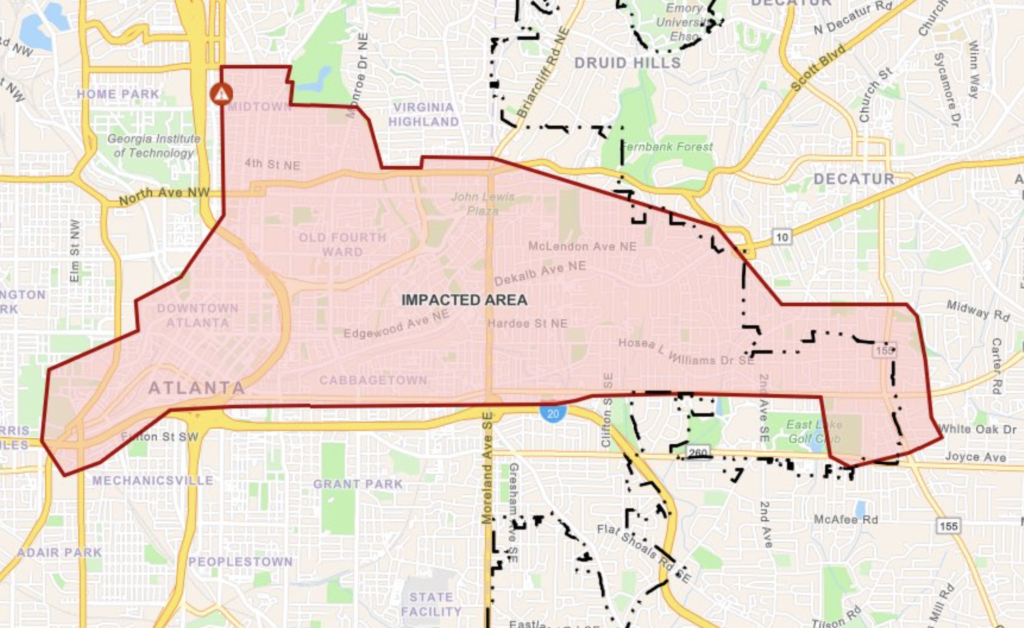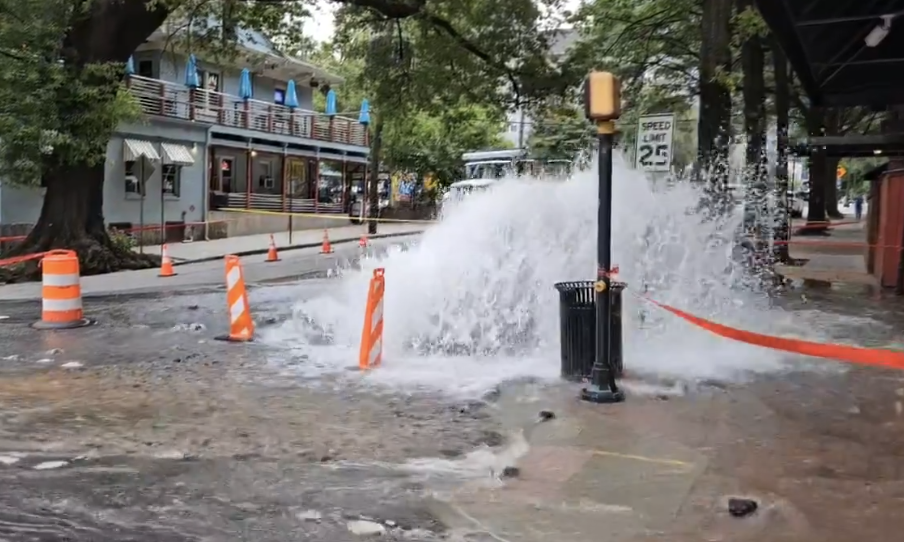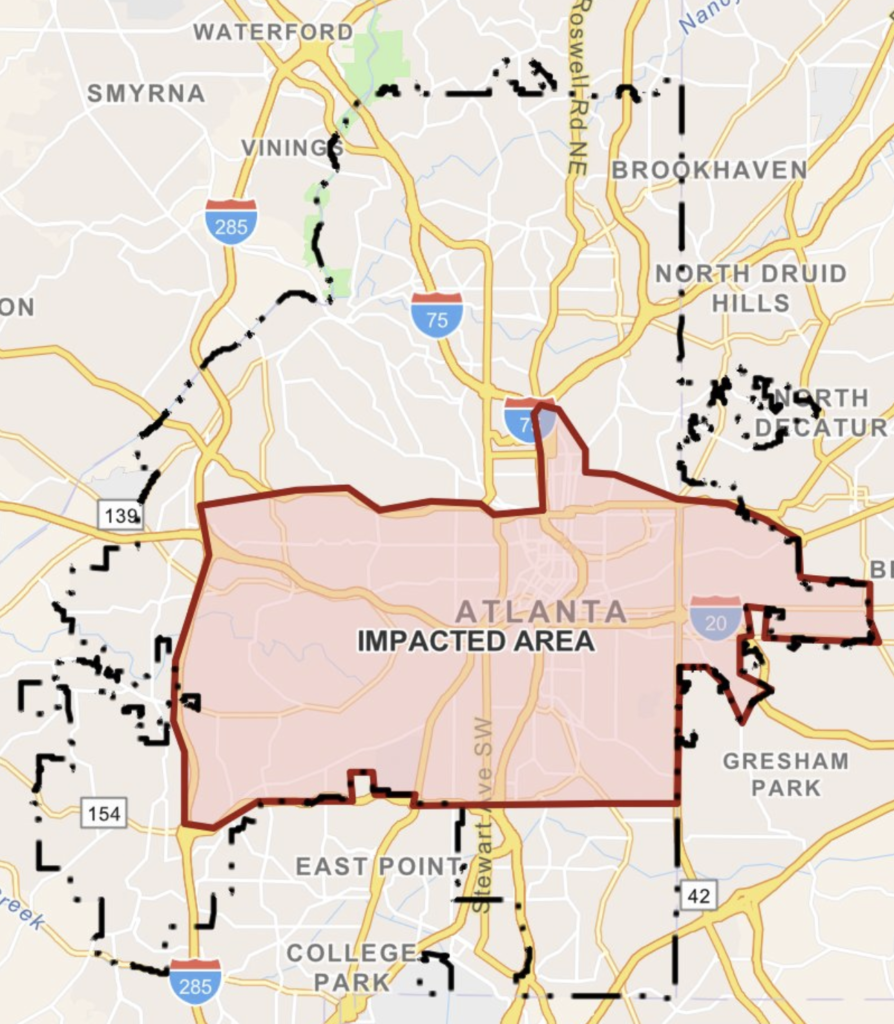Atlanta residents are currently facing a boil water advisory today, and it's crucial to understand the implications and steps required to ensure the safety of your drinking water. This advisory is a precautionary measure taken by local authorities to protect public health. While such advisories can be inconvenient, they play a vital role in preventing waterborne illnesses. Staying informed and following the guidelines can help you navigate this situation effectively.
A boil water advisory is typically issued when there is a potential contamination in the water supply. For Atlanta, this means that all residents must take necessary precautions to ensure their water is safe for consumption. Whether it's cooking, drinking, or even brushing teeth, boiling water is the most effective method to eliminate harmful pathogens.
As we delve deeper into this article, you'll learn more about the reasons behind the boil water advisory in Atlanta, how long it might last, and the steps you can take to stay safe during this time. Understanding the situation fully will empower you to make informed decisions for you and your family.
Read also:Onlyneatbunny Nude A Comprehensive Guide To Understanding The Phenomenon
Understanding the Boil Water Advisory in Atlanta
What Causes a Boil Water Advisory?
A boil water advisory can be triggered by various factors, including water main breaks, equipment malfunctions, or natural disasters. In Atlanta, the advisory today may have been initiated due to a recent water main break. These breaks can compromise the integrity of the water system, allowing contaminants to enter the water supply.
Other potential causes include:
- Loss of water pressure
- Disruptions in the water treatment process
- Contamination from nearby construction or industrial activities
Atlanta's water infrastructure is extensive, and while incidents like this are rare, they highlight the importance of regular maintenance and updates to the system.
How Long Will the Boil Water Advisory Last?
The duration of a boil water advisory varies depending on the cause and the extent of the issue. In Atlanta, authorities typically aim to resolve the problem as quickly as possible, often within 24 to 48 hours. However, the advisory may persist until test results confirm that the water is safe for consumption.
Residents are advised to stay updated through official channels, such as the city’s website or local news outlets, for the latest information on the advisory's status.
Steps to Stay Safe During a Boil Water Advisory
Boiling Water Properly
Boiling water is the most effective way to kill harmful bacteria and viruses. To ensure proper sterilization:
Read also:Ginasavagex Leaks Exploring The Truth Behind The Headlines
- Bring water to a rolling boil for at least one minute.
- Let it cool before use.
- Store boiled water in clean, airtight containers.
For high-altitude areas, such as parts of Atlanta, it's recommended to boil water for three minutes to compensate for the lower boiling point.
Alternative Water Sources
If boiling water is not feasible, consider using bottled water for drinking, cooking, and personal hygiene. Many grocery stores and retailers in Atlanta stock bottled water, and it's advisable to purchase enough to last throughout the advisory period.
In emergencies, water purification tablets or filters can also serve as alternatives. However, ensure that these methods are approved by health authorities for effective water treatment.
Impact on Daily Life
Cooking and Food Preparation
During a boil water advisory, all water used for cooking must be boiled first. This includes:
- Preparing beverages like coffee or tea
- Washing fruits and vegetables
- Thawing frozen foods
Using contaminated water in food preparation can lead to the spread of harmful pathogens, so it's essential to follow these guidelines carefully.
Personal Hygiene
While bathing and showering are generally safe during a boil water advisory, care should be taken to avoid swallowing water. For infants and young children, it's best to use boiled or bottled water for bathing to minimize risks.
Additionally, brushing teeth should only be done with boiled or bottled water to ensure oral hygiene remains uncompromised.
Official Guidelines and Recommendations
Following Local Authorities' Instructions
Atlanta's Department of Watershed Management plays a critical role in managing water advisories. Residents are encouraged to follow their instructions closely, as they provide the most accurate and up-to-date information.
Some key recommendations include:
- Staying informed through official announcements
- Reporting any water quality issues to the authorities
- Participating in community updates or town hall meetings
By working together, Atlanta residents can help resolve the advisory more efficiently.
Understanding Water Contamination Risks
Common Contaminants in Water
Water contamination can occur due to various pollutants, including bacteria, viruses, and chemicals. In Atlanta, the primary concern during a boil water advisory is microbial contamination, which can lead to illnesses such as:
- Cholera
- E. coli infection
- Hepatitis A
Boiling water effectively neutralizes these pathogens, ensuring your water remains safe for consumption.
Preventing Future Incidents
To reduce the likelihood of future boil water advisories, Atlanta's water management systems require ongoing investment and maintenance. Residents can also contribute by:
- Reporting leaks or water main breaks promptly
- Supporting infrastructure improvement initiatives
- Practicing water conservation to reduce strain on the system
These collective efforts can help safeguard Atlanta's water supply for years to come.
Community Support and Resources
Local Organizations Providing Assistance
During a boil water advisory, several local organizations in Atlanta offer support and resources to affected residents. Nonprofits and community groups may distribute free bottled water or provide information on safe water practices.
Some notable organizations include:
- Atlanta Community Food Bank
- Red Cross Atlanta
- Local churches and community centers
These groups play a vital role in ensuring that all residents, especially vulnerable populations, have access to safe water during advisories.
Health Implications of Unsafe Water
Recognizing Symptoms of Waterborne Illnesses
Exposure to contaminated water can lead to various health issues, including gastrointestinal problems, skin infections, and respiratory illnesses. Common symptoms to watch for include:
- Diarrhea
- Vomiting
- Abdominal cramps
- Fever
If you experience any of these symptoms after consuming tap water during the advisory, seek medical attention promptly.
Preventive Measures for High-Risk Groups
Certain populations, such as infants, the elderly, and individuals with weakened immune systems, are more susceptible to waterborne illnesses. For these groups, it's crucial to take extra precautions, such as:
- Using only boiled or bottled water for all purposes
- Avoiding ice made from tap water
- Washing hands thoroughly with safe water
By prioritizing safety, high-risk individuals can minimize their exposure to harmful contaminants.
Environmental Impact of Boil Water Advisories
Energy Consumption and Sustainability
Boiling water on a large scale can significantly increase energy consumption, contributing to environmental concerns. In Atlanta, residents are encouraged to balance safety with sustainability by:
- Using energy-efficient appliances for boiling water
- Minimizing water waste during the advisory
- Opting for reusable water containers instead of single-use plastics
These practices not only reduce the environmental footprint but also promote long-term sustainability for Atlanta's water resources.
Conclusion
The boil water advisory in Atlanta today serves as a reminder of the importance of water safety and infrastructure maintenance. By understanding the causes, following official guidelines, and taking necessary precautions, residents can protect themselves and their families during this period.
We encourage you to share this article with friends and family to ensure everyone in Atlanta stays informed. Additionally, consider exploring other resources on our website for more tips on water safety and emergency preparedness. Together, we can navigate this advisory and work towards a safer, more resilient water system for the future.
Table of Contents
- Understanding the Boil Water Advisory in Atlanta
- What Causes a Boil Water Advisory?
- How Long Will the Boil Water Advisory Last?
- Steps to Stay Safe During a Boil Water Advisory
- Boiling Water Properly
- Alternative Water Sources
- Impact on Daily Life
- Cooking and Food Preparation
- Personal Hygiene
- Official Guidelines and Recommendations
- Following Local Authorities' Instructions
- Understanding Water Contamination Risks
- Common Contaminants in Water
- Preventing Future Incidents
- Community Support and Resources
- Local Organizations Providing Assistance
- Health Implications of Unsafe Water
- Recognizing Symptoms of Waterborne Illnesses
- Preventive Measures for High-Risk Groups
- Environmental Impact of Boil Water Advisories
- Energy Consumption and Sustainability


